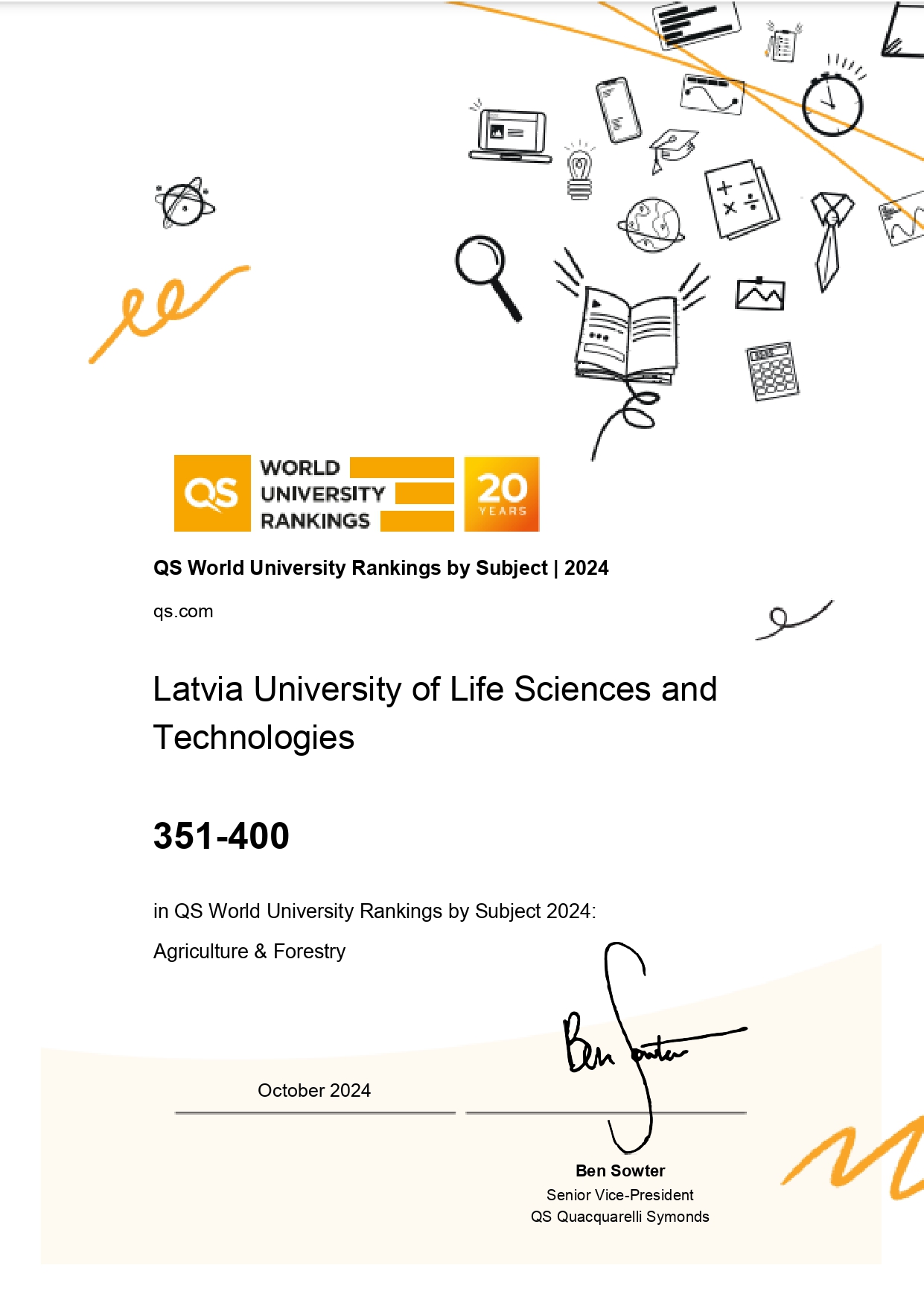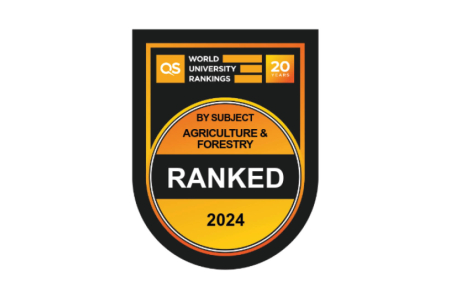LBTU enters the QS thematic ranking of world universities for the first time
The latest result of the subject rating of QS world universities have been published and the Latvia University of Life Sciences and Technologies (LBTU) has entered it for the first time. In the prestigious rating, LBTU has obtained a place in the group "351-400" in the subsector "Agriculture and forestry" of the thematic sector "Life sciences and medicine".
The QS global universities theme rating 2024 includes 55 separate items a cross five brad areas of subjects with 64 universities making their debut (not included in the 2023 edition), including LBTU. The rating provides a detailed assessment of universities based on their performance in more than 50 specific academic disciplines, as well as their performance in five broad faculty fields – arts and humanities, engineering and technologies, life sciences and medicine, life sciences, as well as social sciences and leadership.
The rating assesses a number of criteria: academic reputation, employer reputation, quotability, Hirss index and international research network. When compiling results in all activity, LBTU is ranked in the group "351 – 400". LBTU obtained the highest indicators in the criterion citability – 60.9 rating points and Hirss index 0 51.6 rating points, followed by the international research network – 47.6 rating point and employer reputation – 34.8 rating points. Overall, LBTI received 48.8 points in this sub- sector Agriculture and Forest Science.
Leading places in the QS world universities thematic ranking of “life sciences and medicine” are Harvard University, Oxford University and John Hopkins University, while the subsector ranking of “Agriculture and Forest Science” puts Waggeningen University and Research, the University of California in Davis and the Swedish University of Agricultural Sciences in the top three.
LBTU is one of the leading Latvian multidisciplinary science universities specialising in the sustainable use of natural resources. Research at the university and related scientific institutes is carried out in three directions: biosciences, engineering and social sciences. Research-closely related higher education study programmes offered at the university, which are successor from bachelor's and master's levels to doctorate.

